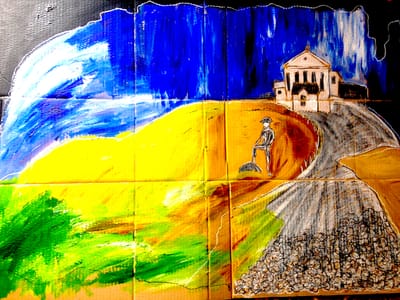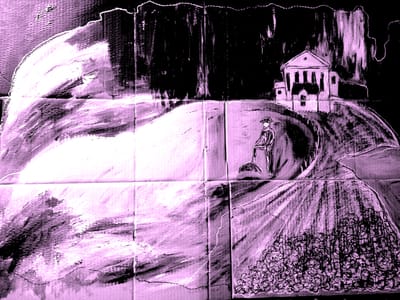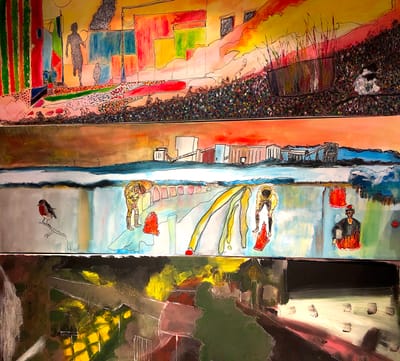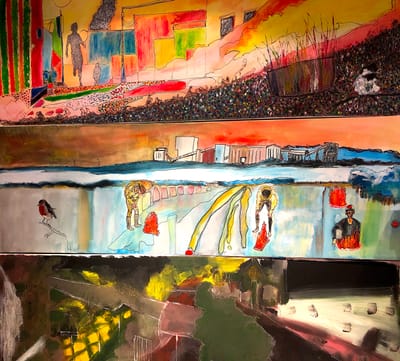Josef Mitterer's Beyond Philosophy Serialised
(Radical) Constructivism and (Critical) Realism occupy different positions in the realm of epistemology. The differences are considered so grave, that extensive discussions hardly ever take place. Criticism is mostly limited to standard phrases or simple devaluations stemming from ignorance. Everybody claims that their own opinions are misrepresented or even that they never held the opinions imputed to them, such as denying reality here or naive realist views there. Josef Mitterer concludes The Flight From Contingency
Read MoreSeparate language and reality, description and object, statements and what they are about. Place them opposite each other. Make these dichotomic distinctions in advance of your discourses, so they can serve as presuppositions or even preconditions. Josef Mitterer continues The Flight From Contingency
Read MoreIf all participants of a discourse master and apply the dualist argumentation technique, this leads to a stalemate between the contrary views. However, the truth-oriented thinker must not be satisfied with such a stalemate-situation: By presupposing his own beyond of discourse to all participants, the dualist thereby also demands that these truth-claims are honoured/redeemed by them. Josef Mitterer continues The Flight From Contingency
Read MoreThe dualist thinker procures access to a truth-instance through a dualization of the knowledge situation. The knowledge-situation is dualized. How can such a dualization be understood? A distinction is introduced (the dualist would rather say: presupposed) between the object of discourse and the discourse about the object (in the example we want to discuss: a distinction between the table that stands here and our discourse about it); a distinction between the opinions, descriptions, theses, statements and what they are about. Josef Mitterer continues The Flight From Contingency
Read MoreHuman discourse often but not always runs free of conflict. Opinions complement each other or are exchanged, and the communication in such non-controversial discourses resembles a “monologue with distributed roles”. Josef Mitterer continues The Flight From Contingency
Read MoreHow many sciences are there? Those being taught at universities, -- and what about models of thought that claim scientific status, but did not make it into the canon of academic disciplines? Josef Mitterer continues The Flight From Contingency
Read MoreThe argumentative equipment the members of our society acquire in the course of their education, of their formative years, includes the use of many expressions that play an outstanding role in philosophy, expressions such as: “truth”, “falsehood”, “error”, “reality”, “fact”, “consensus”, “dissent”, “correspondence”, “correlation”, “agreement”, “proof”, “verification”, “falsification” and more. Josef Mitterer continues The Flight From Contingency
Read MoreEven the most radical relativism/constructivism refrains from an extreme approach/procedure of the kind that our talking constantly generates “parallel” to it objects or even worlds. Josef Mitterer continues The Flight From Contingency
Read MoreThe competence for judging discourse contributions for truth or falsehood in school is on the part of the teacher. Even when students are asked to evaluate the performance of their teachers, they are expected to judge the didactic skills of the teachers, but certainly not, whether the views presented are true or false. Josef Mitterer continues The Flight From Contingency
Read MoreNot only true descriptions refer to the object of the descriptions, also false descriptions are directed to the object of the descriptions.Insofar descriptions fail to correspond to the object they describe and hence are false, they stand in a relation of a non-conformity between object and description. Josef Mitterer continues The Flight From Contingency
Read MoreWhen we talk we don’t simply talk up and down, criss and cross: we talk about houses or trees, neutrons or the universe, about feelings, ourselves or other people or about what others talk or have talked about. Josef Mitterer continues The Flight From Contingency
Read MoreThe various proposed solutions for the philosophical problems claim to be not only one answer to the question of the relationship between the sides of the dichotomies and their elements the answer. However, the idea that there is such a thing the answer presupposes that the How of the relationship between the sides of the dichotomies was already predetermined in advance of the proposed solutions. Hence the epistemic acts can only establish what was already determined in any case without them. Josef Mitterer continues The Flight From Contingency
Read More










